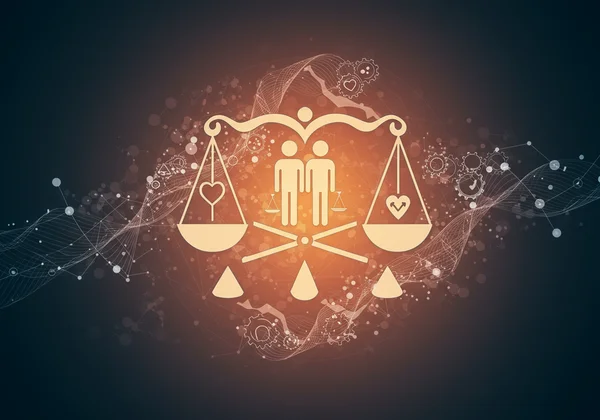The Aspie Quiz: Unmasking Female Autism Traits & What to Do Next
November 13, 2025 | By Leo Sinclair
Have you always felt different, struggled with social nuances, or found yourself exhausted by daily interactions, yet never quite fit the "typical" picture of autism? Many women discover their neurodivergent traits later in life because the female autism experience is often misunderstood or goes unnoticed. This article will explore why, help you recognize these unique traits, and guide you on what to do next in your journey of self-discovery. If these feelings resonate, a great first step is to explore your traits.
Why Autism in Women Often Goes Undiagnosed
For decades, the model for autism was based almost exclusively on studies of boys and men. This created a narrow stereotype that missed the often subtle and internalized ways autism can present in women. The result is a generation of women who have spent their lives feeling like something is "off" but never having the language to describe it. This can lead to a late diagnosis autism journey, which, while challenging, can also be incredibly validating. Understanding why the signs were missed is the first step toward clarity.
The Art of Masking: Blending In and Burning Out
One of the primary reasons female autism is overlooked is a phenomenon known as social camouflaging, or masking. This is the subconscious or conscious effort to hide autistic traits to fit in with neurotypical peers. It can involve forcing eye contact, mimicking social behaviors observed in others, scripting conversations in advance, and suppressing natural tendencies like fidgeting (stimming).
While masking can be a successful survival strategy, it comes at an immense cost. It requires constant mental effort, leading to profound exhaustion, anxiety, and ultimately, autistic burnout. This constant performance can make it nearly impossible for others—and even for the individual herself—to recognize the underlying neurodivergent wiring.

"Normal" Special Interests & Intense Passions
Autistic individuals often have intense passions or special interests. In boys, these might present in ways that are stereotypically noticeable, like an encyclopedic knowledge of trains or dinosaurs. In girls and women, these interests are often more socially "acceptable" or less conspicuous, such as literature, psychology, art, or animals.
Because these passions don't fit the male-centric stereotype, they are frequently dismissed as simple hobbies rather than recognized as a core autistic trait. The intensity, depth of focus, and the sense of joy and regulation these interests provide are the true markers, regardless of the subject matter. It's not what you're interested in, but how you engage with it.
Internalized Experience: Anxiety, Depression, and Sensory Overload
When autistic traits are not understood or supported, the resulting stress is often internalized. This means that instead of displaying outward behavioral challenges, many autistic women experience high levels of anxiety, depression, or eating disorders. Medical professionals may diagnose and treat these conditions without ever realizing they are symptoms of an underlying, unidentified neurotype.
Furthermore, managing constant sensory overload—from bright lights, loud noises, or strong smells—can be an invisible battle. The effort to cope in a world not built for your sensory profile is draining and can be easily misinterpreted as social anxiety or moodiness. You can begin to understand your own profile with a free online test.

Recognizing Female Asperger's Traits in Adulthood
Identifying female Asperger's traits requires looking beyond the stereotypes and focusing on lived, internal experiences. It’s about recognizing patterns of thought, social interaction, and emotional processing that have been present your whole life. Acknowledging these traits isn't about fitting into a box, but about gaining a framework for self-understanding and compassion.
Communication Styles: Directness vs. Social Nuance
Many autistic women find themselves navigating a confusing social world. Your communication styles may be direct, honest, and logical, which can sometimes be misinterpreted by others as blunt or rude. You might find small talk to be pointless and draining, preferring to dive deep into meaningful topics.
Conversely, you might have spent years studying social rules and feel you are "performing" in conversations. You might struggle to interpret non-verbal cues, sarcasm, or unspoken expectations, leading to social anxiety and a feeling of always being one step behind. If this sounds familiar, it may be time to start your journey.
Sensory Sensitivity and Emotional Intensity
Heightened sensory sensitivity is a cornerstone of the autistic experience. You might be the first to notice a faint smell, be bothered by the hum of a refrigerator, or find certain clothing tags unbearable. This isn't being "picky"; it's a genuine neurological difference in how your brain processes sensory input.
This sensitivity often extends to emotions. Many autistic women experience deep empathy and emotional intensity, feeling the emotions of others profoundly. This can be overwhelming and contradicts the harmful myth that autistic people lack empathy. In reality, they may experience it so intensely that they need to withdraw to protect themselves from emotional exhaustion.
The Drive for Justice, Empathy, and Systemizing
Many autistic women possess a powerful sense of justice and fairness. They are often the ones to speak up against inequity and are driven by strong moral principles. This is often coupled with an innate ability to recognize patterns and systemize information, whether in their work, hobbies, or organizing their lives.
These are not flaws; they are strengths. Seeing the world through a lens of logic, pattern-recognition, and deep-seated empathy allows for unique insights and problem-solving abilities. Recognizing these traits can help you get insights into your unique strengths.

Taking the Next Steps After Self-Discovery
Realizing you might be autistic is a pivotal moment. It can bring a rush of relief, confusion, and questions about what to do next. This path is unique to each individual, but there are common steps you can take to move forward with confidence and clarity. The journey of undiagnosed autism in adults is increasingly common and full of potential for growth.
Why Self-Assessment Tools Like Aspie Quiz Matter
Before diving into a potentially lengthy and expensive diagnostic process, a self-assessment can be an invaluable first step. Online tools like the Aspie Quiz provide a structured way to reflect on your traits and experiences. They use questions based on established characteristics of the autism spectrum to give you a preliminary insight.
Taking the Aspie Quiz online can help organize your thoughts and provide data-driven feedback on how your traits align with both neurodivergent and neurotypical profiles. While not a diagnosis, it serves as a powerful tool for self-exploration and can be the catalyst that validates your feelings, empowering you to seek further answers.

Seeking Professional Diagnosis: A Guide for Women
If your self-assessment results resonate deeply, you may consider seeking a professional diagnosis. It's crucial to find a clinician who specializes in diagnosing autism in adult women, as they will be aware of masking and the subtle presentations often missed by others.
A formal diagnosis can provide access to workplace accommodations, offer legal protections, and give you a definitive answer. However, it is not a necessary step for everyone. Many find validation and community through self-identification alone. The choice is entirely personal.
Finding Your Community and Support Networks
Connecting with other autistic women can be one of the most transformative experiences. For the first time, you may find people who understand your experiences without needing a lengthy explanation. Online support networks, such as forums and social media groups (like those on Reddit), are wonderful places to listen, share, and learn.
Finding your community can alleviate the profound sense of isolation that many women feel. It's a space where you can unmask safely, celebrate your strengths, and share strategies for navigating a neurotypical world.
Embracing Your Neurodivergent Path: Validation and Empowerment
Discovering your potential place on the autism spectrum as an adult is not an end point; it's the beginning of a new chapter of self-understanding. It's the moment you stop trying to fix parts of yourself and start embracing who you've always been. This journey is about trading confusion for clarity, self-criticism for self-compassion, and isolation for community.
Whether you're just starting to ask questions or are well on your way, remember that your experience is valid. Taking a moment for self-reflection is a powerful act. If you're ready to take the first step, take the quiz and begin your journey toward a richer, more authentic life.
Frequently Asked Questions About Female Autism & Self-Discovery
Is there an Aspie quiz specifically for adults or women?
While the Aspie Quiz is designed to be age-inclusive and suitable for all genders, its comprehensive questions are particularly effective for adults reflecting on lifelong traits. Many women find it helpful because it covers a wide range of social, emotional, and sensory experiences that align with the female presentation of autism, moving beyond outdated stereotypes.
How accurate is the Aspie Quiz for identifying female autism traits?
The Aspie Quiz is a science-informed preliminary screening tool, not a diagnostic instrument. Its accuracy lies in its ability to highlight patterns of traits associated with the autism spectrum. For many women, it serves as a highly accurate "lightbulb moment," validating feelings they've had their entire lives by providing a framework and language for their experiences.
What are common myths about female autism?
Common myths include that autistic women are not empathetic, are not social, or don't desire friendships. In reality, many experience hyper-empathy, deeply desire meaningful connections but struggle with social nuances, and are masters at masking their difficulties. Another myth is that if you can make eye contact or hold a job, you can't be autistic, which completely overlooks the internal effort and burnout involved.
Is taking the Aspie Quiz equivalent to an autism diagnosis?
Absolutely not. This is a critical distinction. The Aspie Quiz is an educational self-assessment tool designed for self-exploration. It provides valuable insights but cannot replace a comprehensive evaluation by a qualified healthcare professional. We always encourage using the results as a starting point for a conversation with a doctor or psychologist. You can use your results to discover your profile and decide on your next steps.
What do my Aspie Quiz scores mean for a female presentation of autism?
Your Aspie Quiz results provide a summary that shows your neurodivergent (Aspie) and neurotypical scores across different domains. For women who mask heavily, you might see a score that reflects both strong neurodivergent traits and learned neurotypical social skills. The optional AI-powered report can offer deeper, personalized insights into how these traits may manifest in your life, considering the nuances of the female experience.